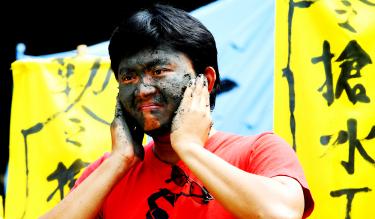There are crimes and then there are crimes; there are trials and then there are trials; there are standards and then there are standards; unfortunately, however, there are also double standards. These concepts have all come into play in the complex and twisted corruption case of Taiwan's former president Chen Shui-bian. This is a case that will have few winners and justice will be lucky if it is even half served, for at heart, what is on trial here is more than just Chen himself though he certainly is. On trial is the legacy of a one-party state system of corruption and double standards, a party where some still carry the bitterness and vindictiveness of lost entitlement and unrealized dreams, a nation that struggles to emerge from a belabored past that includes a lack of transitional justice, stolen state assets, and finally the complicity and betrayal of lost ideals on all sides. If that is not enough, on trial may even be the after effects of a hybrid culture on Taiwan trying to adjust to the realities and differences of a post-modern judicial world.













